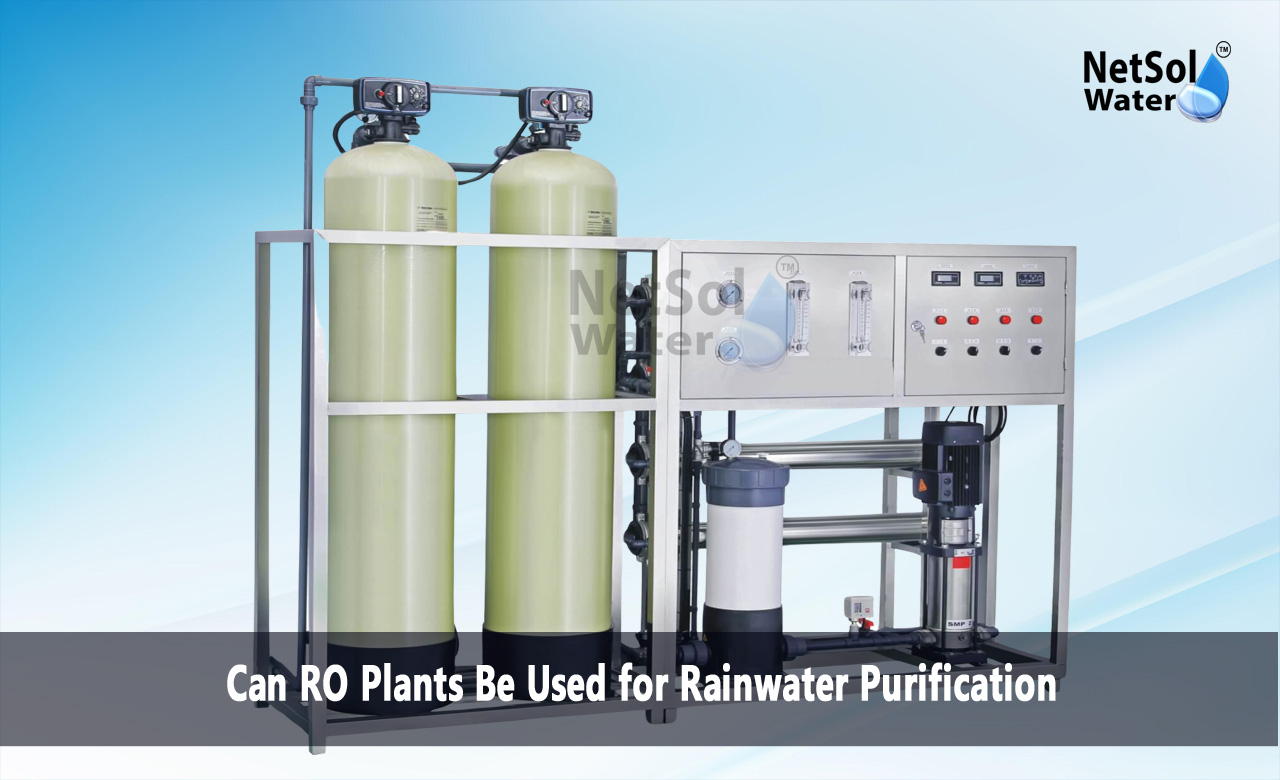Can RO Plants Be Used for Rainwater Purification?
Rain water can help meet water needs in many places. Netsol Water stands as a leading manufacturer of water treatment plants. The company manufactures filters and RO plants for many clients. Each system works to remove harmful elements from water. Rain water may seem pure at first glance. It can hold dust, soot and microbes. It can vary in pH and mineral content. These factors can pose health risks if not treated well. An RO plant can work to remove all these issues. It pushes water through fine membranes to stop solids, microbes and salts. It can also cut some chemicals. Many users ask if they can feed rain water into an RO plant.
We will show how this method works in real life. We will explain what rain water needs. We will show how an RO plant can fit into a rain water setup.
Understanding Rainwater Quality
Rain water collects on roofs and in tanks. It picks up dust soot and leaves. These items can change the nature of the water. They can clog a filter. They can also harm health. Proper knowledge of these traits can guide treatment.Let us have a look at some
Surface Contaminants
Rain water may hold bits of sand, mud and debris from roofs. These particles can damage filters if not removed first. A pre filter can stop most of them and save the main system.
Chemical Impurities
Acid rain can shift pH and add nitrates from the air. These factors can affect taste and safety and must be checked.
Microbial Risks
Bird droppings and dust can bring bacteria and algae. These germs can cause illness if the water goes untreated.
Basics of RO Plant Operation
An RO plant pushes water through a thin membrane to remove small particles. It can clear salts, bacteria and many other impurities. It can cut hardness and heavy metals. This process gives water a neutral taste and high clarity. The effort in pressure and flow can vary by water type.Let us have a look at some
Membrane Function
The membrane acts like a barrier for dissolved solids. It stops ions and large molecules and lets pure water pass.
Pressure Needs
The system must force water at high pressure to pass through the membrane. The pump and design must match rain water traits for best results.
Flow Control
Valves and gauges help keep the right flow and pressure for efficient purification without wasting water.
Benefits of Using RO for Rainwater Purification
An RO plant can turn captured rainwater into safe potable water. It can lower dependence on other water sources over time. It can cut cost in the long run. It can support homes, offices and farms with pure water. It can give clear water free of smell or odd taste.Let us have a look at some
Health Safety
The system can remove bacteria, cysts and viruses. This step makes water safe to drink and cook with.
Versatile Use
Purified rain water can serve many needs. It can fill tanks for cooking washing and lab work.
Cost Effect
Over time the user can save on bottled water and municipal bills by using their own rain water supply.
Challenges in Purifying Rainwater with RO Plants
Using this system can bring some challenges. Rain water quality can vary by season. The system may face pressure swings and membrane fouling. It may need extra filters to guard the membrane.Let us have a look at some
Pre Treatment
A pre filter can stop large particles and sediments. It can extend the membrane life and cut service needs.
pH Adjustment
Rain water’s pH can shift after long storage. Adding a simple chemical can balance the pH to protect the membrane.
Maintenance Needs
The RO plant needs periodic cleaning and checks. The user must watch pressure trends and replace parts on time.
Maintenance of RO Plants for Rainwater Systems
Proper upkeep can keep this system working well with rain water. Users must set a routine check plan. They must inspect filters and membranes. They must keep records of performance numbers.
Routine Inspection
Check filters every few months to catch clogging early. Note any drop in water flow or rise in pressure.
Membrane Cleaning
Clean the membrane as per the maker guide. Use mild solutions to avoid damage and keep full performance.
Record Keeping
Log data on pressure and flow rates after each check. These notes can help spot issues before they grow.
Conclusion
An RO plant can make rain water safe and pure. Netsol Water leads in designing and building these systems. Their experts test the water and pick the right filters for each case. They ensure long term efficiency and support. If you seek a reliable rain water purification solution think of an RO plant by Netsol Water. You can get in touch for more information or request a custom consultation today.
Contact Netsol Water at:
Phone: +91-9650608473, Email: enquiry@netsolwater.com



